How to Prepare for an Employment Law Deposition:
Welcome to your Deposition 101 Class. This is your guide to giving a great deposition. We live here in the city of the stars, Los Angeles, the home of Hollywood where people come from all over to be the next George Clooney, or Salma Hayek. They study, they research their roles, they rehearse, and they memorize their scripts, all at a chance to get their 15 minutes in the limelight.
Now, here’s the deal, you get to be the star of your own deposition. But, guess what? You don’t even have to study, rehearse, research, or memorize anything. To be a success all you have to do is follow 3 easy rules:

- Listen to the entire question.
- Think about the question and your answer.
- Answer the question truthfully with as few words as possible.
With just a little effort, your deposition will be a walk in the park.
We will cover five topics that will help you prepare for your deposition. Your deposition, what is it? What happens before your deposition day? What happens during your deposition day? The admonitions, also known as the rules. And, what happens after your deposition day. Let’s get started.
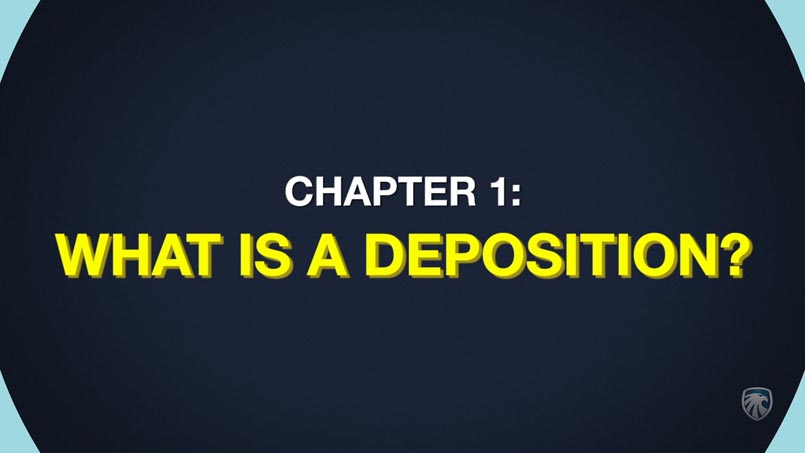
Your deposition, what is it? If you’re reading this, you’ve unfortunately been wrongfully terminated, harassed, or unjustly paid, or treated at work. Now, you may be thinking, “Why do I have to do all this stuff if my employer was at fault?” It’s a good question. It’s how our judicial system is set up to work. Each side gets to ask the opposing side questions to get information.
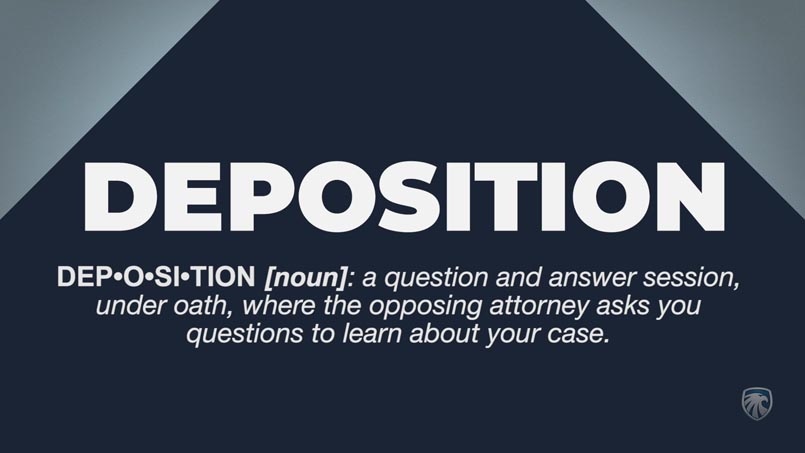
Okay, so what is a deposition? It’s a word to describe a question an answer session under oath, during which the opposing side’s attorney asks you questions, and you answer them. Your deposition will usually take place in a conference room at the opposing side’s office. There is no judge or jury. As I said before, your deposition is a chance for the opposing side to gather information. But, it’s also a chance for them to evaluate how well you will do if the case goes to trial. More specifically, they’re evaluating your credibility, which is are you honest and trustworthy so that a jury will believe you.
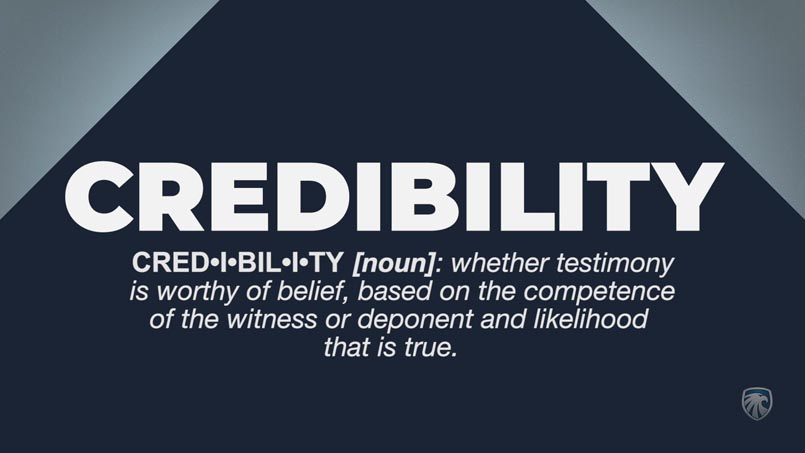
Your credibility is the most important aspect of your case. That’s what a deposition is. Not very difficult at all, especially when you keep in mind that all you have to do is listen, think, and answer truthfully.
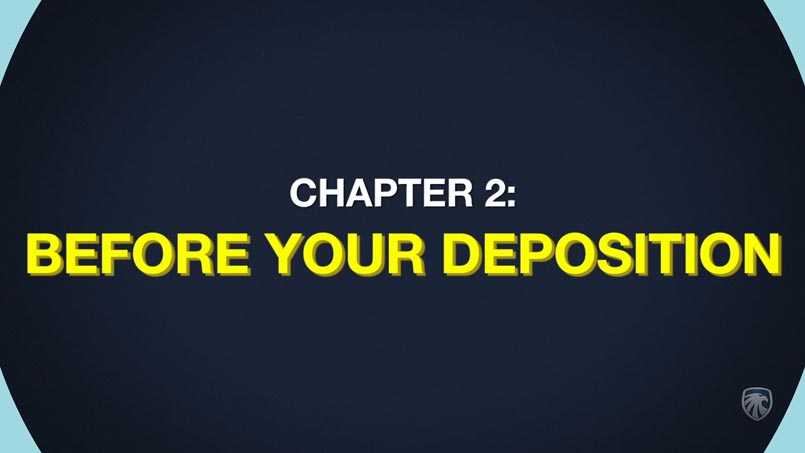
All right, let’s move on. What happens before your deposition day? Your deposition often comes months, if not years after you’re no longer working with the wrongdoing employer. That’s why in the weeks before your deposition you will watch this video, and also meet with your Dominguez Firm Attorney to go over the process, and to awaken the memories, so they are fresh in your mind.
The good news, is you don’t have to study for your deposition. It can be helpful to take some quiet time on your own, and go back in your mind to what life was like before the employer wrongdoing. The actual wrongdoing, and your life after the wrongdoing, including what emotional, economic damages, and consequences you have suffered as a result of the employer wrongdoing.
With all this said, it’s important to remember that this is not a test. It’s simply your day to listen, think, and answer questions to the best of your ability.
The day before the deposition, it is important to get a good night sleep, and avoid drugs and alcohol. Wear nice clothes that you might wear to church, or to a casual business meeting. A suit and tie, or a formal dress is not necessary. A blazer’s option.

The day before your deposition map out where you need to go and plan for traffic delays. Get an early start as we will ask you to arrive 15 to 30 minutes early. Of course, if you need help with transportation just ask your Dominguez Firm Attorney, and we can help.
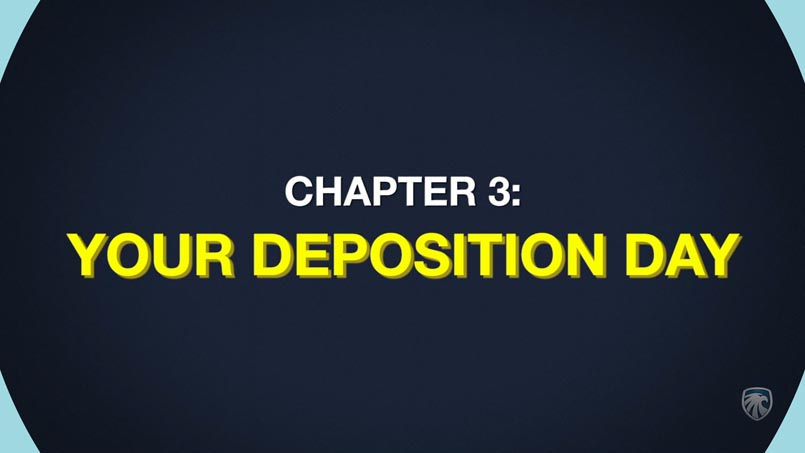
What happens during your deposition day? All right, so you’re already for your deposition day. What’s it actually going to be like? Upon arriving to the deposition you will meet with your Dominguez Firm Attorney to make sure you’re all set to go. This is a good time for you to ask your Attorney any last minute questions you might have. After that, you and your attorney will go into the deposition conference room. The opposing attorney and the court reporter will join us in the room. The Dominguez Firm Attorney will sit next to you for the entire process.
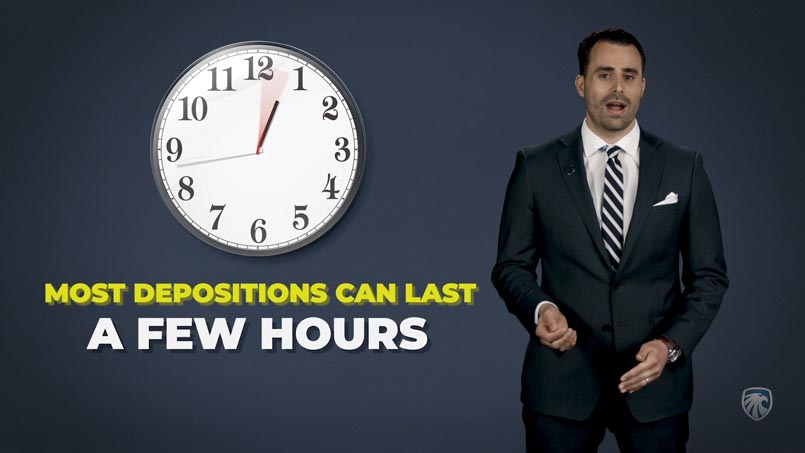
Most depositions can take a few hours and can last up to a full day. It’s important for you to know that this is not a marathon. You’re allowed to take as many breaks as you need, whether it’s to use the restroom, stretch your legs, talk to your attorney, eat, or just give your brain a break. At any time all you have to say is, “I’d like to take a break.”
Most depositions follow a similar format of five steps.

The first step is when you take the oath, tell the truth. The court reporter administers an oath and uses a small typing machine to type out everything that is said during your deposition.
Next, they will ask you to state and spell your name, raise your right hand, and then they will ask you to swear to tell the truth, the whole truth, and nothing but the truth. To which you will answer, yes. The oath has the same force and effect as if you were in a formal courtroom and carries with it the penalty of perjury if you don’t tell the truth.
That’s why it’s important for you to follow these three simple rules:
- Listen to the entire question
- think about the question and your answer
- Answer the question truthfully with as few words as possible.

The second step is the admonition section. This is when the opposing attorney goes over the ground rules with you. This step is of most importance, and we will explain this in further detail in its own section.

The third step is the background section. This is when the opposing attorney asks you about your life prior to your employment with the defendant employer. The opposing attorney will ask you about your family history, work history, educational history, and some pertinent health history. The opposing attorney simply wants to get an idea about what your life was like before the employer wrongdoing. They may also ask about your recreational, social, and entertainment activities.

After that, the opposing attorney will go over your current status. This will usually include a discussion of all alleged damages, and current employment status. It’s a good time to slow down and make sure you listen to the question, and think about the answer.
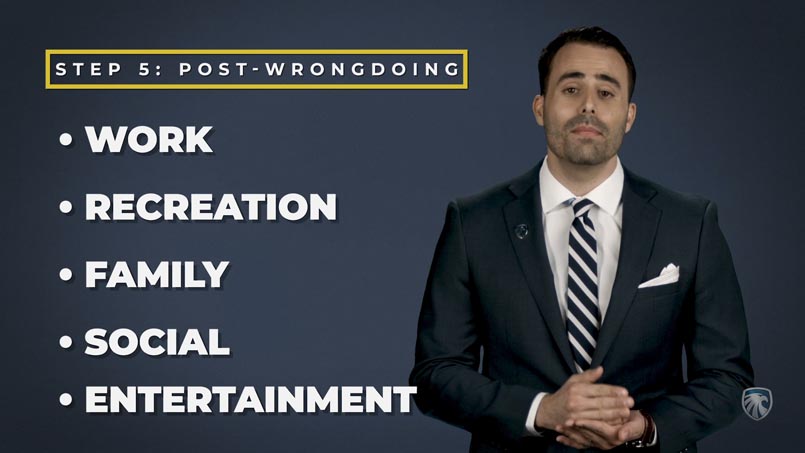
They will also ask how the employer wrongful conduct has impacted the enjoyment of your life, work, recreation, family, social and entertainment activities. At this point the opposing attorney is usually done with their main questions. In very rare circumstances your Dominguez Firm Attorney might ask you some questions, and if so it’s usually to clear something up. Another time you may hear from your Dominguez Firm Attorney is when they’re issuing objections, if the opposing Attorney asks questions that do not meet legal requirements.
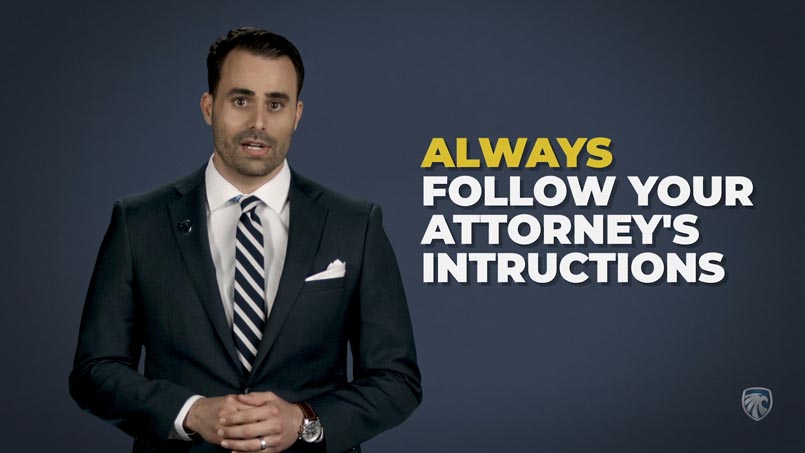
In rare instances, your Attorney may tell you not to answer the question. It is very important that you listen to your Attorney, and follow any instructions your Attorney might have for you. This is what it looks like with the players.
Your attorney is there to make sure the day goes smooth, that the other attorney follows the rules, and that you are comfortable.
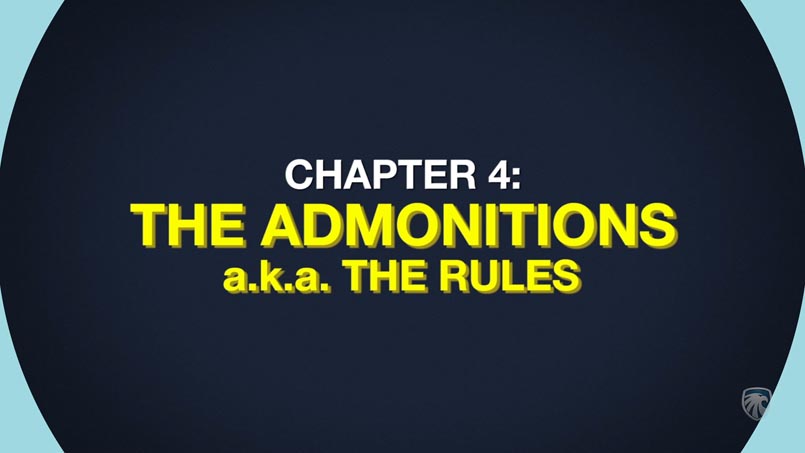
The admonitions, also known as the rules. All right, now that we’ve covered what a basic deposition in structure looks like, we’ll back up a bit and talk about the admonitions, also known as the rules. After the oath the opposing attorney will go over some of the rules of the deposition with you to make sure you understand them. Here are rules to keep in mind when you’re listening to the question.
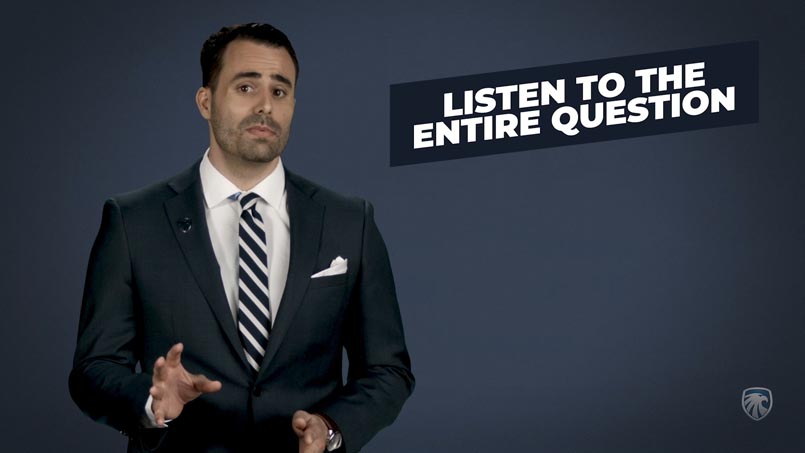
Listen to the entire question. You might feel the urge to answer the questions before the full question has been asked. But, you run into the risk of answering the wrong question if you do so.
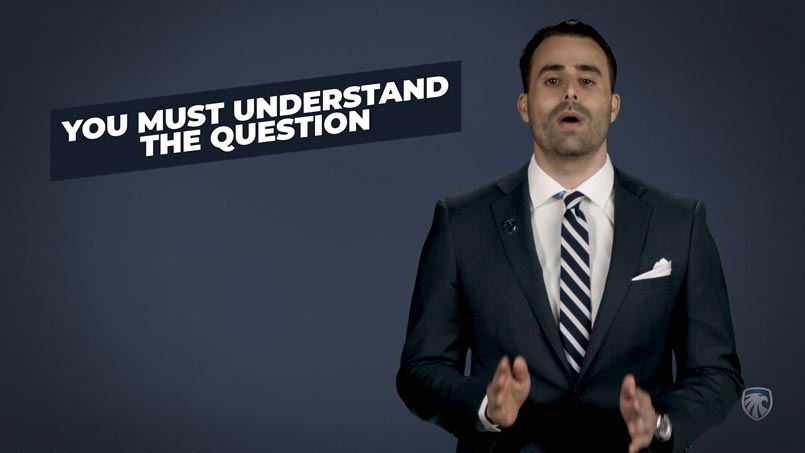
Make sure you understand the question. If you do not understand the question, please speak up and say so. If the question requires you to guess, do not guess. Please speak up and say, “Calls for a guess,” and a guess is not permitted in a deposition. As an example, if I ask you the length of my desk in my office, and you’ve never been to my office, well then your answer would be a guess or mere speculation.
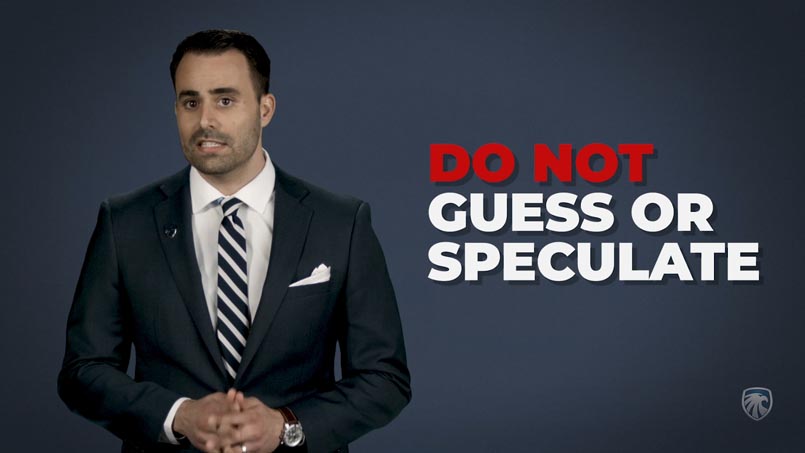
Here are rules to keep in mind when you’re thinking about the question. Think about what was asked of you, and how best to answer it truthfully in as few words as possible. If the question asks you to estimate something, avoid giving a precise measurement of time, speed, heights, lengths, if they were not previously measured precisely by you. You’re entitled to state in your estimate based on prior perception, but never guess nor speculate if you have no prior knowledge.
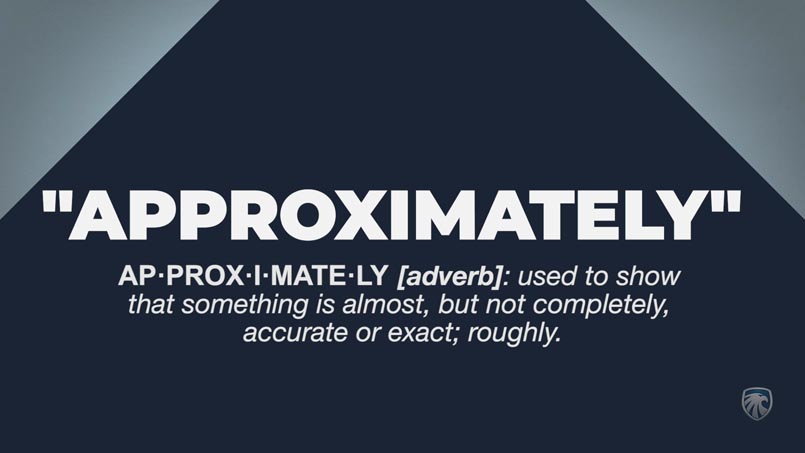
It is best to state the word, “Approximately,” prior to giving your answer. This is very important. Memories fade over time, and this is totally acceptable. If I asked you the length of the desk in my office, and you’ve previously been inside my office and seen my desk, then you would be entitled to say, “Approximately five feet,” even though it actually measures six feet. That’s okay, you’re entitled to the estimate based upon your prior observation, even though your estimate is not 100% accurate.
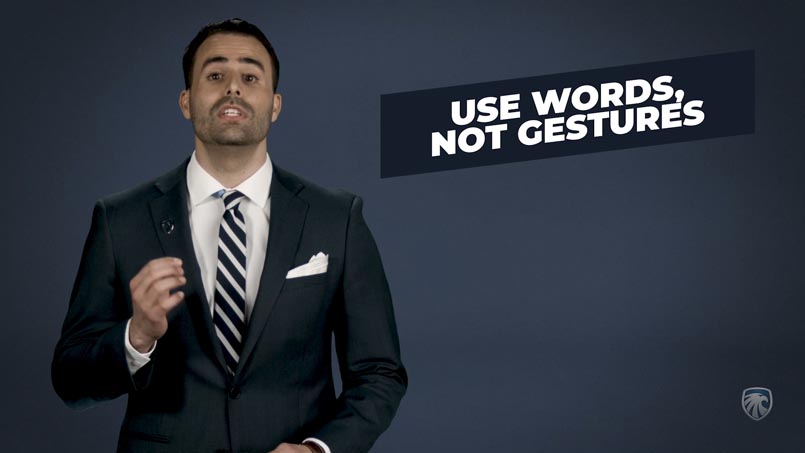
Finally, here are rules to keep in mind when you’re answering the question. Use your words, not gestures. Every answer must be out loud using words. Do not use casual expressions like, “Yeah, nuh-uh.” Please say yes or no. Do not speak in absolutes. Please avoid saying, “Always, never,” and other similar words and phrases.
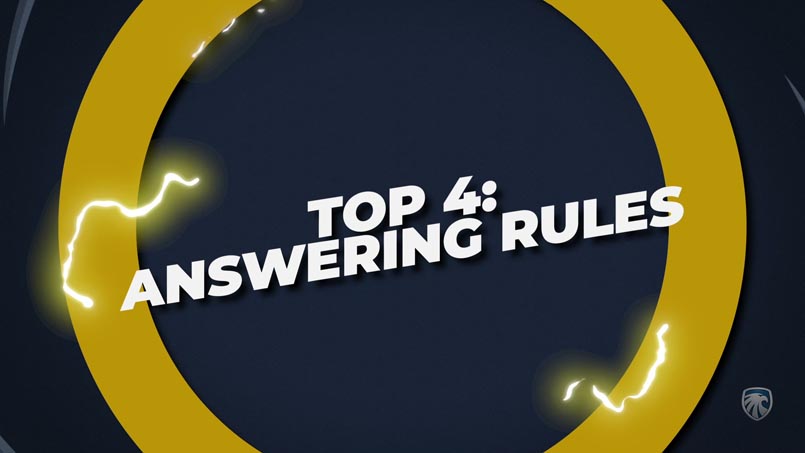
The following four points are of special importance.
- I don’t know, is a great answer if you truly don’t know.
- I can’t remember, is a great answer if you truly cannot remember.
- Do not provide extra information or volunteer information that was not asked of you.
- Only answer in a way that addresses the exact call of the question.
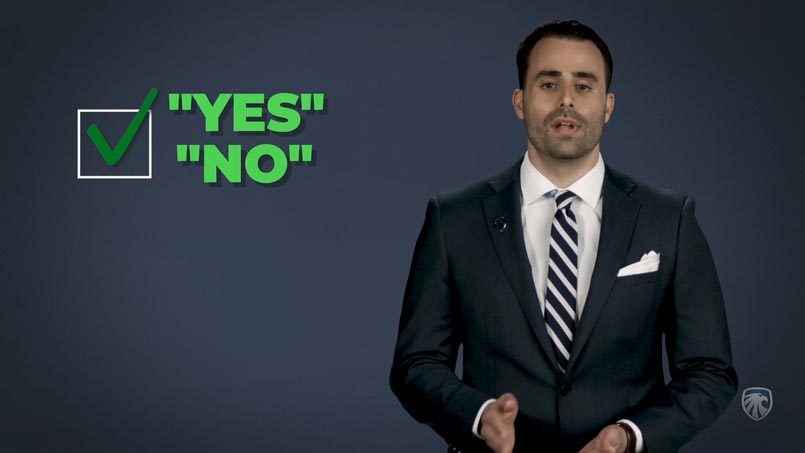
Many questions call for a simple yes, or no. The call of the question is what prompts you to give a certain type of answer. If the opposing attorney asks, “Did you eat dinner?” A correct response is, “Yes.” An incorrect response is, “Yes, I had a salad, a bowl of pasta, and cake.” See the difference? The opposing attorney did not ask you what you ate, it was not in the call of the question. Plus, if you volunteer information, you are sure to get a whole bunch of other questions.
Also, do not worry if the other attorney doesn’t ask you every single question. You may be dying to tell them something that is important to you. If they don’t ask it, do not provide the information. We may ask you at trial, if your case goes to trial.
All right, now that we have covered the admonitions, let’s talk about what happens after the deposition.
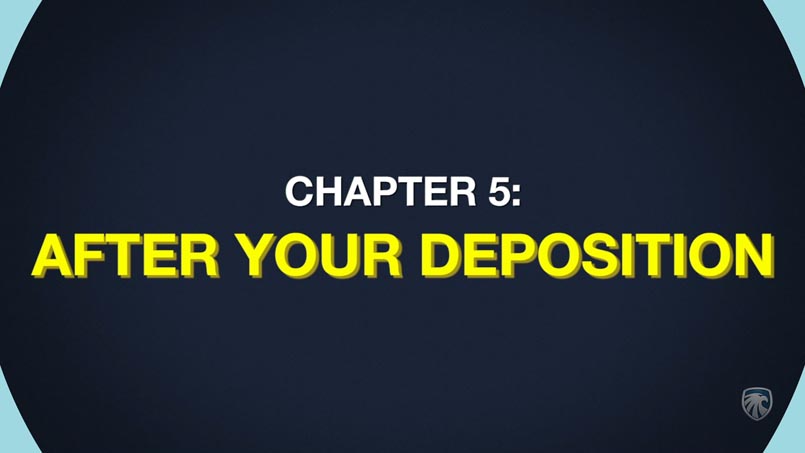
What happens after your deposition day? All right, so you’ve just given a great deposition, and it’s all over. Now what? After the deposition, the court reporter will prepare a booklet of everything said. You will have a chance to make any changes that you think are necessary to any of your answers. However, if you make any changes that make it seem like you were fixing something that favors you, then that makes you look bad. You want to be credible.
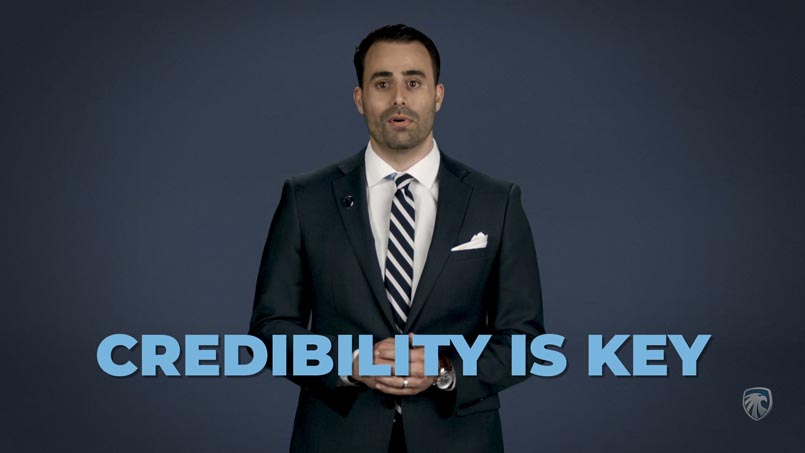
Don’t forget, the opposing side will have access to the two different versions of your answer. It’s okay to make soft changes to your deposition. Things like spellings, or correcting a name, or some other minor change. But, if you listen, think, and then answer, you will nail your deposition and hopefully not have to change anything.

That’s it, you’ve made it to the end of this lesson, and you’ve learned to one, listen to the entire question. Two, think about your question and answer. And three, answer the question truthfully with as few words as possible. Pretty simple, right? No need to feel overwhelmed or nervous. All of this preparation will help you. If you forget anything on the day of your deposition, you can always take a break, and discuss it with your attorney.
But again, if you stick to the basics and listen, think, and then answer your question, your deposition will be a success, and you’ll be the star of your case. Thank you for paying attention, and please do not hesitate to ask your Dominguez Firm Attorney if you have any questions.
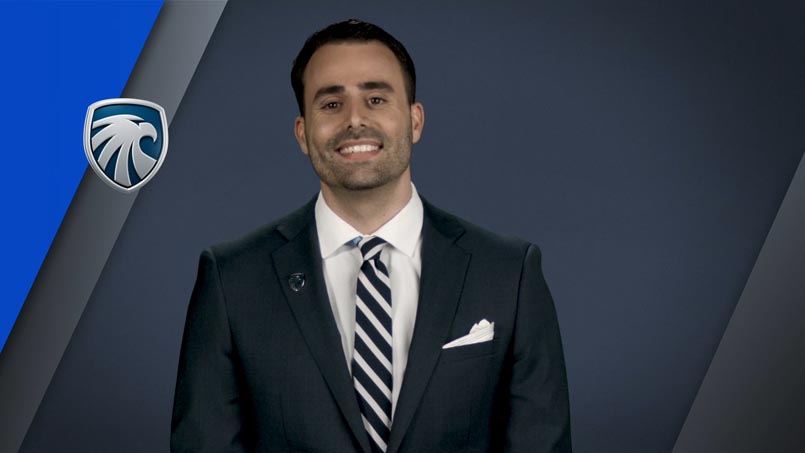
My experience was good. They made sure to kept me in the loop and made sure to let me know what was going on the whole time. My mom has used other attorneys and this experience was beyond better. I would definitely recommend them!
— Ashley Magana
The attorneys were always available and answered my questions. I would recommend them to anyone. Zoe is the best!
— Janet Salazar
My experience with The Dominguez Firm and the attorneys was really good. They were very informative and always returned my calls.
— Jocelyn Gonzalez
